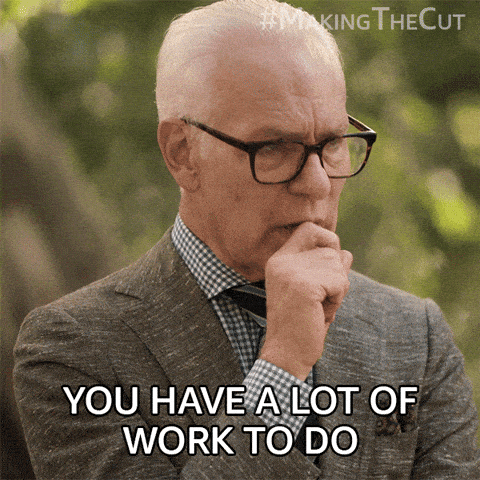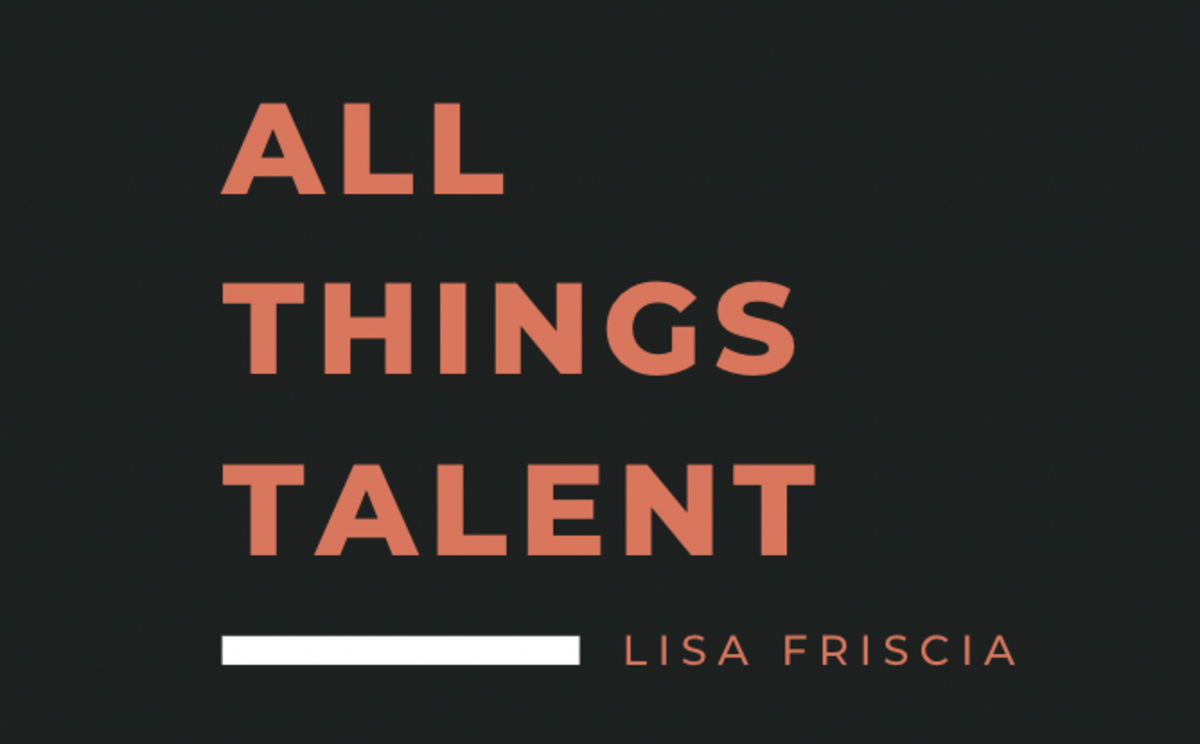Table of Contents
Hello
The last two weeks have been a bit bananas. Transform was a great experience and a chance to connect to a whole lot of people I like, but the flight also really aggravated my hamstring, leading to a painful few days. There have been subsequent doctor visits and scans once I returned (we’re still figuring out next steps, which involve me seeing a hip doctor. If I wasn’t middle aged before, I 100% am now). All is under control and I am in a privileged space that I have health insurance and the ability to navigate all things doctors and insurance. But Lord, it’s like having another job.
On Transform- a quick note on conferences and days of learning. While I do enjoy listening to smart folks talk about big ideas, I do wish conferences had a bit more focus on case studies and examining ideas in action. To me, that’s where the magic happens. Strategy lies in the details. It’s why I started writing this newsletter and my LI one. Which got me further thinking about how to give even more actionable support. I’m thinking of ways to showcase how other people are translating talent ideas into reality. If you’d like to be showcased or know someone who should be, feel free to email me directly at [email protected]
On Gen Z
I am now old enough to see a second “new” generation enter the workforce, and thus a second time that I’ve seen the pearl clutching and admonishments of “these kids.” I am not in the business of generalizing one way or another and one of my bigger frustrations is how so many talk about Gen Z. Specifically:
❌ Speaking about Gen Z as though they were aliens descended upon us
❌ Acting like many of the things they are asking for
❌ Or conversely acting like we have to abandon all business strategy

Live footage of people talking about Gen Z
So much of the above comes from talking about Gen Z versus with them. In my experience, nothing productive comes from talking about any group- most especially because it encourages thinking about groups in monoliths.
Look, organizations have work to accomplish, payroll to meet, staff to support and legal issues to consider in most decisions- and these can at times require hard choices. This isn’t always obvious to junior folks entering the workforce, and even more so now that young professionals’ entry in the workforce was impacted by the pandemic.
But we also need to stop acting like work isn’t a transactional relationship which requires clear commitments and agreements up front from both parties with ongoing bidirectional communication. We can’t bemoan a loss of loyalty when we don’t invest in people’s growth, share recognition, and demonstrate through layoffs that staff are expendable.
I’ve heard from more than a few folks that they are struggling with talking to Gen Z. And while I appreciate that and may write about it at a different time, I also want to name that some (not all) problems employers are having is because they are missing the boat on hiring and onboarding.
Job descriptions and hiring
In a 2022 Muse survey, 80% of Gen Z workers polled say it’s ok to leave within 6 months if the job is not as advertised. But 61% would also stay in the right company for more than ten years. So what does this suggest? In employer branding, job descriptions and throughout the hiring process, you need to be real about both the opportunities and the challenges, the types of support that can be expected, and what is the candidate’s level of decision-making and responsibility.
And don’t just talk about the work ahead. How can you leverage case studies or role plays to give a better sense of the work (and the candidate’s ability to handle said work)? How can you use storytelling to explain the mission of the work and the impact you are looking to have? How can you connect the dots between internal practices and processes with that mission and impact?
Onboarding
While many senior leaders are complaining that Gen Z is unprepared for the workforce, it may be interesting to note that many in Gen Z don’t disagree. Recent research in the US and UK shows that recent graduates know that skills such as influence and communication are important. At the same time 70% feel that university has under prepared them for work and 40% claim that they are not receiving this type of support or training by their direct managers.
What does this mean? It means some of that preparation work now needs to fall on employers. Onboarding must be more than having employees read their manuals, take compliance trainings and meet the team. It means grounding standard operating procedures in purpose and bottom lines. It means being clear about what work looks like in your organization, e.g. naming your communication norms. It means building in time for new staff to internalize and norm on how to perform their jobs. Who can they observe? Who can they process with? Who can they practice with? It should be noted that an effective onboarding leads on average to 69% of staff staying for more than three years, so this is work we already should have been doing.
It also means feedback should be given directly and in a timely manner. A StaffCloud survey shows that 75% of Gen Z value feedback. Do not wait to give constructive feedback until the end of the 90 days or their review. Some well meaning managers do this to “let people settle in.” Instead, I’d ask you to consider bite-sized forward facing pieces of feedback that demonstrate that you are invested in their growth and want them to succeed. The faster they get quality feedback, the faster they grow. Part of the unspoken reason folks are burned out and leave roles? Because they feel like they are bad at their job or not achieving the outcomes they want. Burnout often comes when the amount of work we are expending does not equal the impact we are having.
And in conclusion
I do not think one generation has the monopoly on what is right, and there is a lot of value in an intergenerational workforce. But that only exists if we talk and listen and appreciate the context from which some of our worldviews have been shaped.

Gif by primevideo on Giphy
On a related note: I am giving a talk in June on managing and giving feedback with a focus on Gen Z to a group of doctors, and talking to a few potential clients about hiring, onboarding and performance eval audits. If you interested in talking about any of the above, let’s find time.
1% Solutions
Leveraging stay conversations for macro trends- there is considerable information about having stay conversations. A bit less about how to use the information to increase retention. But less so as to how to leverage the data to identify and leverage macro trends. Knowing what most people or even a sizable minority say can help you develop more targeted employer branding, career development programs, or even guide your incentive structures as you’ll have a better sense of what attracts and keeps people, and what they value. (You can also check out my LI article that talks about this in more depth)
Planning for better candidate experience- Interviews are a two way street. You are evaluating candidate’s ability to do the role in question. And they are evaluating you as an organization they’d want to work for. And the hiring process should be able to support both. One thing I’ve learned is to assess whether candidates have the information they need to be successful at the task you are giving them, at the level you are expecting. One way to do this is to identify and clarify requisite information. Where to start? Walk candidates through what to expect (i.e. what will be discussed in each round), who they will meet and share any resources they’ll need to review prior (e.g. a strategic plan, web site or case study if it requires processing time). By giving something to review, you can better assess how they prepare, not just someone who can talk off the cuff. Plus this prep can better support candidates who are neurodivergent, introverted or are English Language Learners.
Establishing the why and criteria for success for standard operating procedures- One reason that onboarding folks is so challenging is sometimes so little is codified or when it is, it’s not done well. I’m hoping you’ve started to document your standard operating procedures to help codify institutional knowledge (especially if you are in a school system or district losing staff due to the ESSER cliff). Now, take it one step further by making sure you’ve listed the purpose of the system, the criteria for success and the non-negotiables/bottom lines. People- and especially Gen Z- need to understand the purpose of something that they are doing. The other benefit is that when they know WHY they are doing something and the criteria for success, they are better equipped to raise concerns to you- which in turn means you have additional safeguards.
Things I am Reading, Listening to and Watching
Creating a Day of Learning- I’m someone who has organized summer professional development series, onboarding weeks, and conferences, so I am biased when it comes to creating learning events in which there is balance of content, choice, and culture building. This LinkedIn blog post outlines how Heinz created a day of learning around AI. And while the headline is focused on AI, I think their recipe (no pun intended) for a day of learning is spot on. There is a blend of high level conversation, hands on learning and some great employer branding (the Tingly Ted Talks kills me)
Three Things Every Leader Should Know- This HBR article outlines adaptability, contextual-problem solving and empathy as key traits for an effective leader (I’d add coaching and subject matter expertise here as well). I’m listing it here not because this is ground breaking but more to offer this: if you agree, how can you use this to audit your leadership hiring, leadership development and leadership eval processes? More specifically, do these themes show up in your leadership talent processes, ad are you hiring, training and evaluating based on these? And if you don’t agree, that’s fine- but whatever you believe a leader should do, make sure it’s reflected in your talent processes.
New Department of Labor guidelines- With the upswing in independent contractors, I think it’s important to stay on top of what differentiates a contractor from an employee. I’m still digesting and apparently more clarity will be forthcoming in the next few months.


